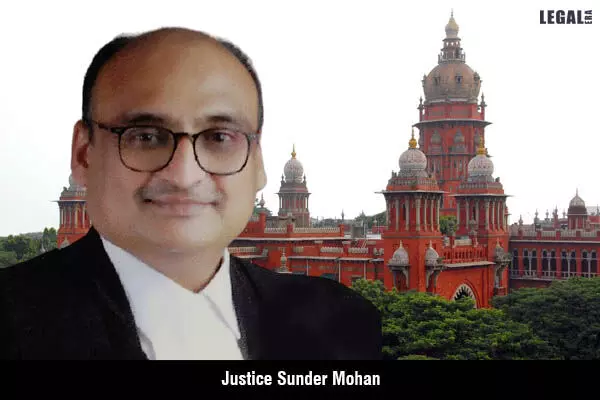- Home
- News
- Articles+
- Aerospace
- Artificial Intelligence
- Agriculture
- Alternate Dispute Resolution
- Arbitration & Mediation
- Banking and Finance
- Bankruptcy
- Book Review
- Bribery & Corruption
- Commercial Litigation
- Competition Law
- Conference Reports
- Consumer Products
- Contract
- Corporate Governance
- Corporate Law
- Covid-19
- Cryptocurrency
- Cybersecurity
- Data Protection
- Defence
- Digital Economy
- E-commerce
- Employment Law
- Energy and Natural Resources
- Entertainment and Sports Law
- Environmental Law
- Environmental, Social, and Governance
- Foreign Direct Investment
- Food and Beverage
- Gaming
- Health Care
- IBC Diaries
- In Focus
- Inclusion & Diversity
- Insurance Law
- Intellectual Property
- International Law
- IP & Tech Era
- Know the Law
- Labour Laws
- Law & Policy and Regulation
- Litigation
- Litigation Funding
- Manufacturing
- Mergers & Acquisitions
- NFTs
- Privacy
- Private Equity
- Project Finance
- Real Estate
- Risk and Compliance
- Student Corner
- Take On Board
- Tax
- Technology Media and Telecom
- Tributes
- Viewpoint
- Zoom In
- Law Firms
- In-House
- Rankings
- E-Magazine
- Legal Era TV
- Events
- Middle East
- Africa
- News
- Articles
- Aerospace
- Artificial Intelligence
- Agriculture
- Alternate Dispute Resolution
- Arbitration & Mediation
- Banking and Finance
- Bankruptcy
- Book Review
- Bribery & Corruption
- Commercial Litigation
- Competition Law
- Conference Reports
- Consumer Products
- Contract
- Corporate Governance
- Corporate Law
- Covid-19
- Cryptocurrency
- Cybersecurity
- Data Protection
- Defence
- Digital Economy
- E-commerce
- Employment Law
- Energy and Natural Resources
- Entertainment and Sports Law
- Environmental Law
- Environmental, Social, and Governance
- Foreign Direct Investment
- Food and Beverage
- Gaming
- Health Care
- IBC Diaries
- In Focus
- Inclusion & Diversity
- Insurance Law
- Intellectual Property
- International Law
- IP & Tech Era
- Know the Law
- Labour Laws
- Law & Policy and Regulation
- Litigation
- Litigation Funding
- Manufacturing
- Mergers & Acquisitions
- NFTs
- Privacy
- Private Equity
- Project Finance
- Real Estate
- Risk and Compliance
- Student Corner
- Take On Board
- Tax
- Technology Media and Telecom
- Tributes
- Viewpoint
- Zoom In
- Law Firms
- In-House
- Rankings
- E-Magazine
- Legal Era TV
- Events
- Middle East
- Africa
Madras High Court Rules Administrative Reasons Insufficient For Condoning 950-Day Delay In Arbitration Appeal

Madras High Court Rules Administrative Reasons Insufficient For Condoning 950-Day Delay In Arbitration Appeal
In a recent ruling, Justice Sunder Mohan of the Madras High Court has determined that administrative reasons alone are insufficient to justify the condonation of a 950-day delay in filing an appeal under Section 34 of the Arbitration and Conciliation Act, 1996.
The case involved a petition filed by the Project Director of the National Highways Authority of India (NHAI), seeking to condone a delay of 950 days in filing an appeal. The Petitioner argued that the Principal District and Sessions Judge had incorrectly modified an arbitration award by reappraising evidence, which is not permitted under Section 34. The Petitioner claimed a strong chance of success in the appeal and attributed the delay to administrative issues, including the transfer of case files from the Project Implementation Unit (PIU) in Madurai to a newly established PIU in Dindigul on January 22, 2018, and the absence of a full-time Director at the Dindigul PIU.
M. Mallika Begam, the First Respondent, opposed the petition, arguing that the Petitioner had failed to provide a compelling reason for the delay. She noted that the Petitioner’s reasons were based on administrative delays without specific details and contended that the COVID-19 extension for filing delays was not relevant as the delay occurred well before the pandemic.
The High Court emphasized that the core issue was not the legality of the District and Sessions Judge’s order but whether the Petitioner had sufficiently justified the 950-day delay. The Court observed that while administrative delays and changes in project management were noted, these factors alone did not suffice to justify such an extensive delay. It ruled that the COVID-19 related extensions did not apply as the delay predated the pandemic.
The High Court referenced earlier rulings affirming that administrative reasons alone are inadequate for justifying delay condonation. In precedents such as R. Jeyamani and M. Murguan, both the High Court and various Division Benches have consistently ruled that administrative delays and changes in the law do not meet the criteria for sufficient cause to excuse delays.
Additionally, in cases like The Project Director, National Highways v. R. Karuppiah and others, the High Court dismissed delay petitions based on similar reasons.
The Court found the reasons provided in the affidavit to be vague and insufficient, leading to the dismissal of the petition for condonation of delay.



